Did you know that nearly 40% of your home’s energy bills can be traced back to your HVAC system? If your heating, ventilation, and air conditioning aren’t working at peak efficiency, you could be losing hundreds of dollars each year—without even noticing! Whether your air conditioning is struggling in summer, your heater’s overworking in winter, or your indoor air feels stuffy, ignoring the signs of an outdated or malfunctioning HVAC system can be an expensive mistake. In this guide, discover how to spot hidden HVAC costs, the smartest maintenance moves, and exactly when to repair or replace your ac system before it drains your savings.
HVAC: The Hidden Cost Drain in Your Home
“Nearly 40% of household energy bills come from running your HVAC systems—inefficiency could be quietly costing you each month.”
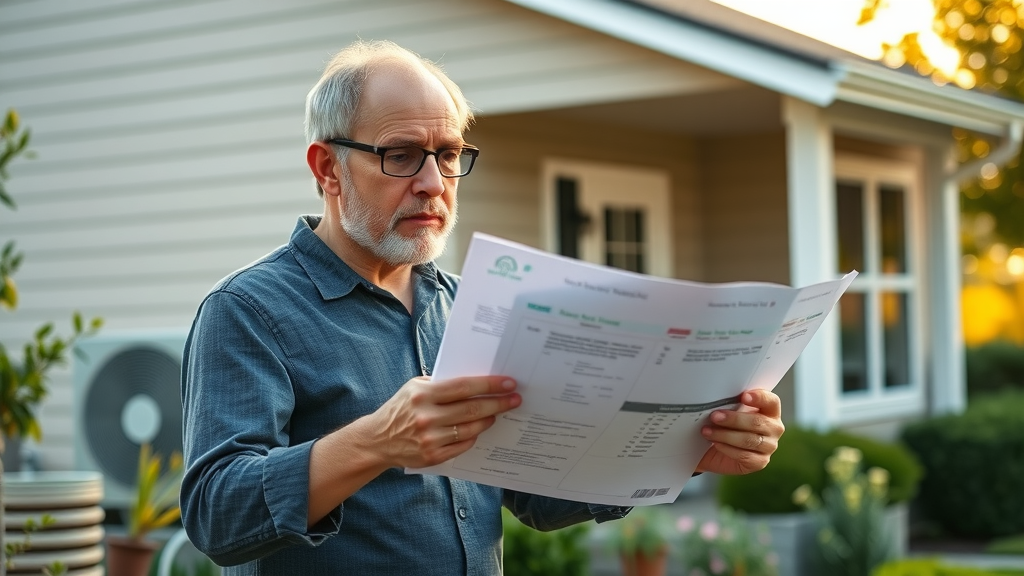
For most homeowners, heating and cooling represent the single largest portion of monthly utility expenses. Even small inefficiencies in your ac system—like dirty filters or duct leaks—can cause bills to skyrocket. These issues often go unnoticed until you’re faced with stifling rooms in the heat or freezing nights in winter. That's why keeping your hvac system in top shape isn't just about comfort—it's about energy efficiency, air quality, and significant long-term savings. Ignoring basic maintenance or delaying necessary repairs can lead to escalating costs, poor indoor air quality, and even costly equipment failures down the line. This section dives deep into the reasons those energy bills are surging, equipping you with the knowledge to reclaim control over your home’s comfort and operating cost.
What You’ll Learn About HVAC and Air Conditioning
- How to identify common HVAC system problems
- Cost-saving maintenance tips for air conditioning and heating
- Signs it’s time to replace your AC system or HVAC unit
- How HVAC impacts indoor air quality and energy efficiency
- When to call an HVAC technician
Understanding HVAC: What Every Homeowner Needs to Know
What Does HVAC Stand For?
HVAC stands for Heating, Ventilation, and Air Conditioning. This system is responsible for keeping your home’s indoor air comfortable and healthy throughout the year. The heating component typically consists of a furnace or heat pumps that warm indoor air. Ventilation ensures fresh outdoor air is circulated indoors while removing contaminants, thanks to fans, vents, and ductwork. The air conditioning aspect cools the indoor air when temperatures rise, maintaining the ideal balance of temperature and humidity. Altogether, your hvac system works to circulate air, filter out irritants, and stabilize temperature and moisture—a crucial defense for your home’s air quality and energy efficiency.
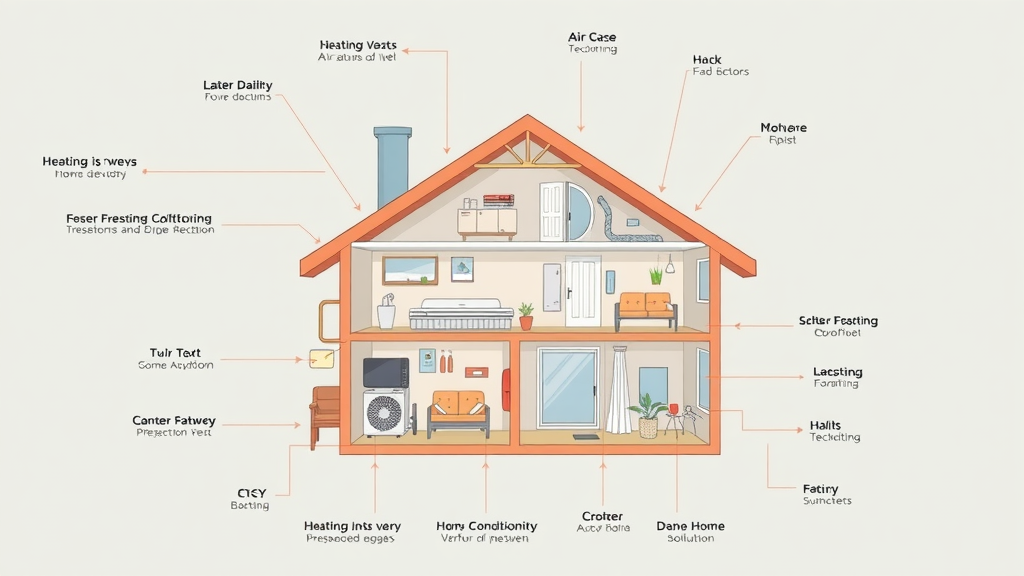
HVAC Systems Explained: Components & Types
HVAC systems come in several different formats, each suited to different house layouts and climate concerns. The core types you’ll encounter are:
- Central HVAC Systems: These rely on a network of ducts, a central furnace or heat pump, and an air conditioner to provide whole-house temperature control. They’re known for uniform comfort but can lose efficiency if ductwork is leaky or dirty.
- Ductless Mini-Split AC Systems: Ideal for homes without ducts, these systems use individual units in each room and are extremely efficient for zoned cooling or heating.
- Heat Pumps: Operating as both heaters and air conditioners, heat pumps transfer heat into or out of your home depending on the season. They’re renowned for their efficiency and can be paired with backup heating for colder climates.
- Air Handlers: These work with a central AC or heat pump, pushing conditioned air through the house’s ductwork.
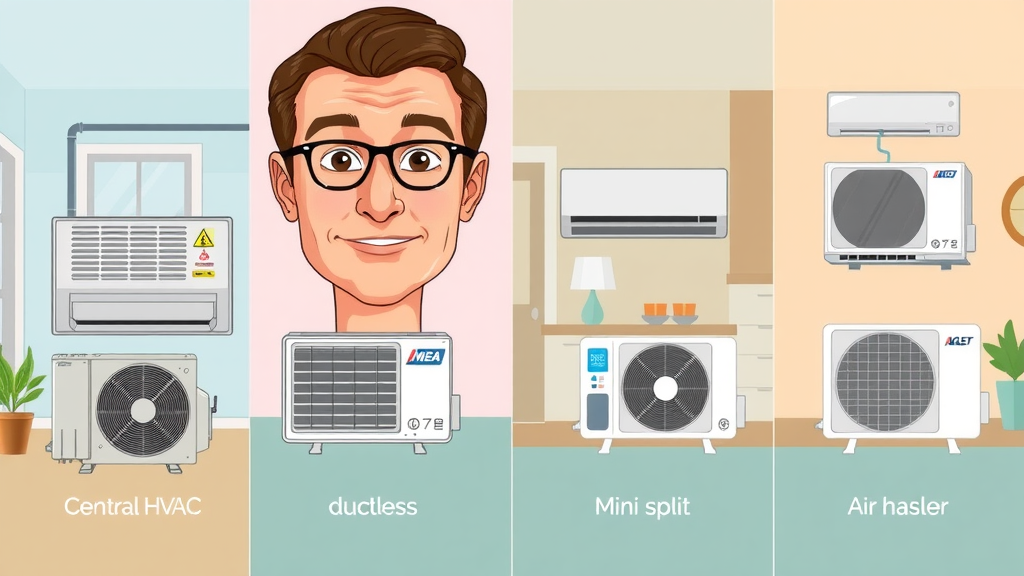
How HVAC Systems Affect Your Indoor Air Quality
Maintaining excellent indoor air quality is essential for your family’s health and comfort, and your HVAC system is central to this goal. Clean, well-maintained systems filter out dust, pollen, pet dander, and airborne contaminants, improving air quality and reducing allergy risks. Conversely, a neglected ac system can spread mold spores, dust, and even bacteria, undermining your home’s safety. Warning signs like musty smells, increased allergy symptoms, or visible dust buildup suggest your hvac system isn’t delivering the clean indoor air you need. Investing in regular maintenance, timely filter changes, and air quality upgrades ensures that every breath your family takes is fresh and safe.

Common HVAC Problems that Impact Your Wallet
Warning Signs of a Failing HVAC System or Air Conditioning
- Strange noises from AC units or air handlers
- Uneven temperatures from your HVAC system
- Rising utility bills due to inefficient air conditioning
- Poor indoor air quality or excessive humidity
If you notice these issues, your ac unit or hvac system may be working overtime, sending your energy bills soaring. Loud clunks, rattles, or grinding sounds from your air handler or air conditioner are red flags for worn-down components or debris. Uneven heating or cooling in different rooms often points to aging equipment, duct problems, or thermostat malfunctions. The biggest giveaway, however, is a sharp uptick in your utility bills—inefficient systems consume more energy to do the same work, making every hour of operation costlier. Alongside comfort, your air quality suffers, with potential increases in indoor allergens, mold, and humidity, further impacting your family’s well-being.
Root Causes for HVAC & AC System Malfunctions
Most HVAC failures stem from a few key issues: clogged air filters restrict airflow and strain your cooling system; malfunctioning air conditioners may have electrical faults or failing compressors; faulty heat pumps can’t shift warmth effectively, especially when outdoor air temperatures swing; and leaks in ductwork let conditioned air escape, undermining both heating and cooling. If maintenance is neglected, dust and debris build up, driving down efficiency and increasing operating cost. For optimal performance, address filter changes, clean your air conditioner’s evaporator coil, and have an expert inspect your ac system. This foresight keeps your indoor air healthier and lowers your utility bills dramatically.
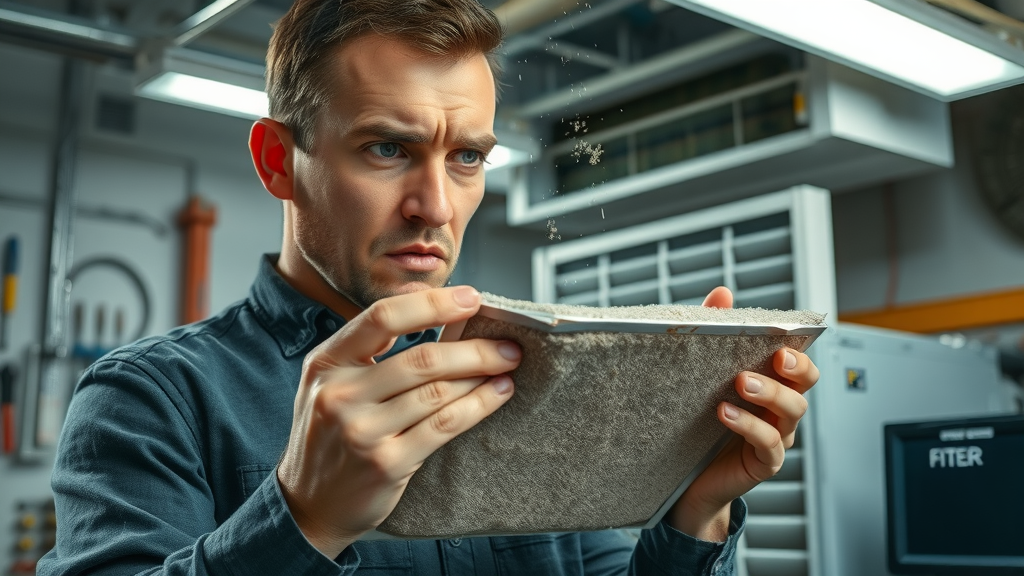
Is It Time to Repair or Replace Your HVAC System?
| Criteria | Repair | Replace |
|---|---|---|
| Cost | Lower upfront, less than $2,000 | Higher upfront, $4,000–$15,000 |
| System Age | Less than 10 years | 10–15+ years |
| Energy Efficiency | May improve slightly | Dramatically improved |
| Air Quality | Improved if components cleaned | Significantly better with new tech |
| Warranty | May have expired | New warranty coverage |
The $5,000 Rule for HVAC: A Smart Homeowner’s Tool
When you’re deciding whether to repair or replace your HVAC system or AC equipment, use the “$5,000 Rule.” Multiply the age of your current system by the estimated repair cost. If that number exceeds $5,000, replacement is usually the wisest choice. For instance, a 10-year-old unit with a $600 repair bill equals $6,000—over the threshold. This rule also accounts for rising repair costs, lower energy efficiency, frequent breakdowns, and lackluster air quality that older ac units often produce. Weighing total cost of ownership, longevity, and comfort can save you from pouring money into a system that’s close to retirement anyway.

Lifespan Expectations: AC Units and HVAC Systems
- Average Lifespan: Most HVAC system components last 10–15 years, with premium equipment and excellent air quality extending that to 20 years.
- AC System Replacement Timelines: Air conditioners typically need replacement every 12–15 years, while heat pumps and air handlers generally last up to 15 years with regular care.
- What Affects Longevity: Systems in areas with salty outdoor air or harsh weather, or those with poor maintenance routines or persistent dust, tend to wear out faster. Indoor air quality and regular filter replacements are crucial for longer life and better performance.
Improving Efficiency: Save Money and Boost Comfort
Routine Maintenance for Your HVAC System and AC Unit
- Change air filters regularly for better air quality and system performance
- Schedule routine inspections with qualified HVAC technicians to catch problems early
- Clean coils and check air handler operation to maintain airflow and prevent breakdowns
- Monitor thermostat and system performance to ensure optimal cooling and heating
Regular upkeep is the difference between spiraling energy bills and comfort you can count on. Maintaining your ac system with proactive filter changes, professional tune-ups, and cleaning prevents clogs and breakdowns. Techs will inspect refrigerant levels, calibrate thermostats, and ensure all parts from the air handler to the heat pump are functioning efficiently. These small steps ensure energy efficiency, prevent surprise operating costs, and keep your interior air quality high, no matter the season.

Upgrading Your HVAC: New Systems and Heat Pumps
Sometimes spending a little more upfront for a modern HVAC system or high-efficiency heat pump pays off in both lower utility costs and greater comfort. New systems carry improved air filtration, sophisticated humidity control, and smart thermostats that minimize wasted energy. For homes with frequent breakdowns, poor indoor air quality, or escalating repair bills, investing in a replacement ensures you’re not throwing money at an outdated setup. Efficient ac systems and ductless mini-splits offer zoned climate control, savings on operating costs, and a significant boost in home value and indoor air comfort.
| Feature | Older Systems | Modern Upgrades |
|---|---|---|
| SEER (Efficiency Rating) | 8–12 | 16–25+ |
| Thermostat | Manual | Smart/WiFi programmable |
| Air Quality | Basic filtration | HEPA/UV purifier, multi-stage filters |
| Humidity Control | Manual/limited | Advanced, integrated dehumidifiers |
| Noise Level | Noticeable | Ultra-quiet operation |
Humidity and Air Quality: Why They Matter in Your HVAC System
Humidity and air quality are as critical as temperature for true home comfort. Excess humidity can result in mold growth, aggravate allergies, and cause costly structural damage, while overly dry air can lead to health problems and product wear. Modern HVAC systems keep indoor air in an optimal humidity range, using integrated dehumidifiers and advanced filtration to trap particulates and allergens. Failing to monitor these metrics can lead to both higher operating costs (since damp air feels hotter or colder, requiring more energy to condition) and greater health risks, underlining how vital it is to choose an HVAC system that excels in both humidity and air quality management.
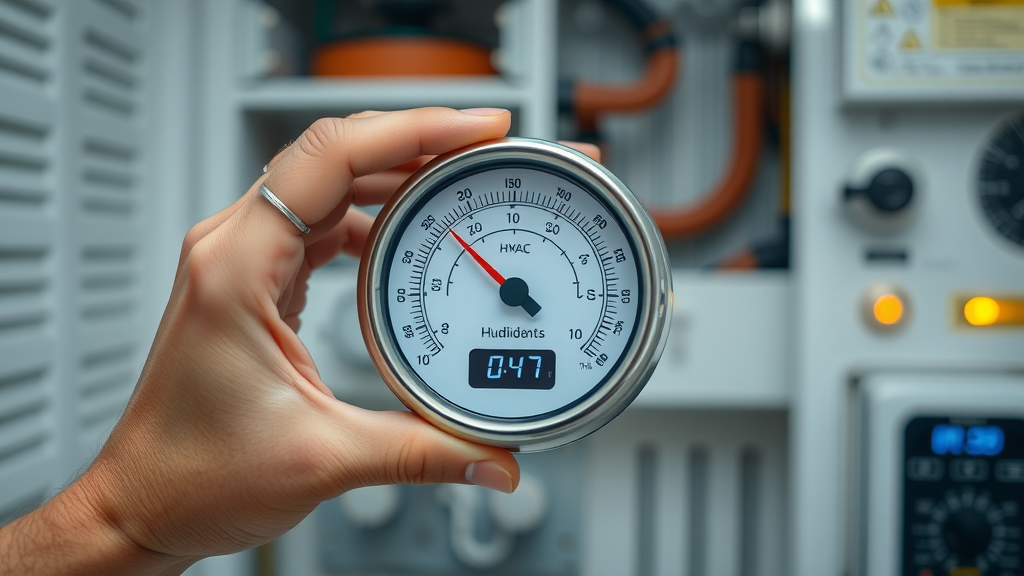
When to Call a Professional HVAC Technician
DIY vs. Professional HVAC Repairs: What’s Safe?
Some HVAC troubleshooting can be performed by homeowners—such as replacing air filters, resetting circuit breakers, and cleaning visible debris from vents. However, tasks like diagnosing refrigerant leaks, repairing ductwork, or servicing air conditioners should be left to a certified hvac technician. Attempting complex repairs without training risks not only greater damage to your ac system but also safety hazards, especially when dealing with electrical or refrigerant issues. Promptly calling a qualified technician ensures compliance with warranty, preserves energy efficiency, and protects your home’s indoor air quality.
“Don’t let a small HVAC issue turn into a $5,000 emergency! Timely attention by an HVAC technician can save money, energy, and hassle.”
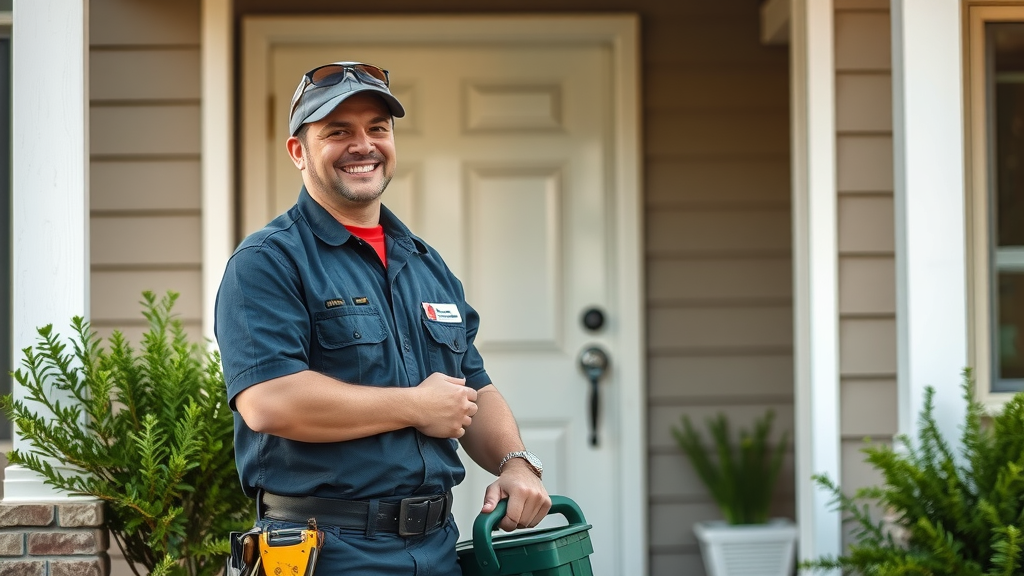
How to Choose the Right HVAC Services Near Me
What to Look for in a Trusted HVAC Contractor
- Certifications and years of experience in air conditioning and HVAC system repair
- Strong reputation and positive local customer reviews
- 24/7 emergency air conditioner repair availability
- Demonstrated expertise in energy efficiency and air quality solutions
| Criteria | Yes/No |
|---|---|
| Certified & Licensed? | Yes |
| Insured & Bonded? | Yes |
| Upfront Pricing Provided? | Yes |
| Service Guarantees/Warranty? | Yes |
| Transparent Reviews? | Yes |
| 24/7 Emergency Service? | Yes |
People Also Ask: HVAC Questions Answered
Can HVAC make $100,000 a year?
The HVAC industry, especially in the United States, offers solid earning potential for skilled and specialized technicians. While the average salary for most hvac technicians ranges between $40,000 and $70,000 annually, highly experienced professionals, particularly those specializing in commercial ac systems or advanced technologies, can make $100,000 or more. Growth paths include management, sales, and owning an HVAC service business, making this field a strong option for those seeking job security and financial advancement.
What does HVAC stand for?
HVAC stands for Heating, Ventilation, and Air Conditioning. In your home, it includes systems like furnaces, heat pumps, air handlers, ductwork, and air conditioners designed to manage both comfort and indoor air quality. In a commercial building, HVAC systems are often more complex, serving larger spaces with intricate mechanical ventilation and multiple cooling systems.
What is the $5000 rule for HVAC?
The $5,000 rule is an easy calculation to help you decide if you should repair or replace your ac system or hvac equipment: multiply the system’s age by the estimated repair cost; if the total is over $5,000, replacement is generally recommended. This rule helps you factor in system age, parts performance, and ongoing operating cost into your decision for optimal air conditioning performance and savings.
Is HVAC good for money?
HVAC careers yield reliable income, especially with advancement or specialization. For homeowners, investing in high-efficiency HVAC systems, timely repairs, and indoor air quality upgrades can pay off substantially over time—lowering energy expenses and ensuring comfort, health, and strong property value.
Key Takeaways: Stop Letting HVAC Costs Sneak Up On You
- Stay alert to HVAC system warning signs
- Regular maintenance of air conditioning and HVAC units saves money
- Invest in efficient HVAC systems and professional help for better air quality and comfort
FAQs: All About Your HVAC System, Air Conditioning, and More
- How often should HVAC filters be replaced? Most homes need new filters every 1–3 months, but homes with pets or high dust may require monthly changes.
- What are the best ways to improve indoor air quality? Regular filter replacements, using air purifiers, keeping vents clean, and scheduling seasonal HVAC servicing are most effective.
- How do I know if my air conditioner is energy efficient? Look for high SEER ratings, Energy Star certification, and notice if bills drop after replacing outdated units.
- What is the average cost for a new air conditioning system? Expect to pay between $4,000 and $12,000 depending on system type, home size, and features.
- Can HVAC repairs be a DIY job? Homeowners can handle filter changes and thermostat resets, but major repairs should always be left to a professional HVAC technician.
Watch this educational video for visual tips on spotting HVAC failure: see malfunctioning units, expert commentary, animated infographics, and urgent homeowner moments.
Discover how simple HVAC maintenance helps keep your indoor air fresh and healthy for your whole family!
Conclusion: Take Control—Prevent Costly HVAC Surprises
Staying proactive with your HVAC system, air conditioning unit, and indoor air quality management is the best way to save money and enjoy year-round home comfort.

Ready to Save Money With a Better HVAC System?
Take charge—Email Us info@qoolab.com to schedule a free HVAC system assessment and see how much you could save!
 Add Row
Add Row  Add
Add 



Write A Comment